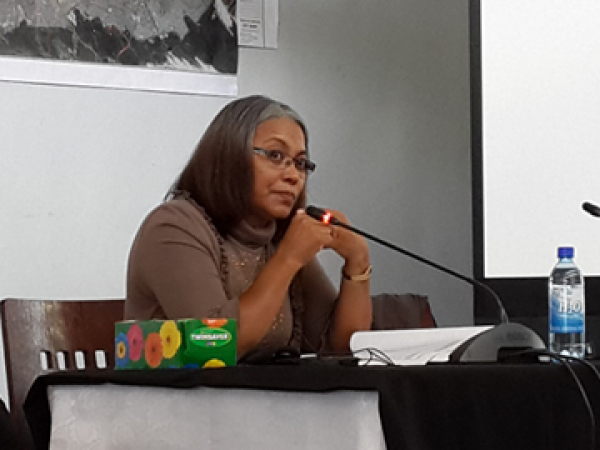Khayelitsha police not trained to deal with domestic violence

The South African Police Services (SAPS) in Khayelitsha do not meet the obligations set out in the Domestic Violence Act when dealing with cases of domestic violence.
This is one of several findings about the “poor management” of domestic violence incidents detailed in the report released to the public on 25 August 2014 by the Commission of Inquiry into policing in Khayelitsha.
In the report, the commission underlines the urgent need for SAPS to fully comply with the Act, including: keeping a register of all domestic violence incidents; opening a docket for each protection order and warrant of arrest issued; and sending police vehicles out immediately a domestic violence incident is reported.
The commission also recommends that the station commander keeps a record of officers who fail to comply.
During its sittings, the commission heard that, according to the South African Stress and Health survey, domestic violence was the most common form of violence experienced by women in South Africa.
The report calls for cases of domestic violence to be recorded in Khayelitsha crime statistics and marked as such on the cover of the docket.
“Having a register when a case of domestic violence is opened makes it easier for police to see trends if the woman reports abuse more than once. The problem is that police simply don’t know the Act,” says Mosaic executive director Chantel Marais.
Mosaic, a non-profit organisation which has been operating in the Khayelitsha area for 18 years, focuses on reducing and preventing abuse and domestic violence.
In its recommendations, the commission says there were clear “problems” at the Khayelitsha, Lingelethu West and Harare police stations with regard to compliance with the Domestic Violence Act.
The commission also calls on SAPS to remove service pistols from officers who have been involved in domestic violence.
It recommends a five-year research project on domestic violence in Khayelitsha in association with academics and community organisations.
Commissioners Kate O’Regan and Vusi Pikoli say it is not clear how many of the police officers in the area have been trained to respond to domestic violence and recommends training in serving protection orders and dealing with sensitive complaints.
Marais says the recommendations in the commission’s report are “very broad” but can be implemented in police stations country-wide.
“The most important focus for us is sensitisation. What police don’t realise is that by the time a woman goes to the police station for help, it is either the first time she was beaten badly or she needs assistance to get out of a long abusive relationship,” she says.
Instead of receiving counselling and face-to-face consultations, she says, victims of abuse are often just handed a form to complete without any explanation of what happens next.
Marais says if police are “overworked” and “burdened,” they should get help from community organisations in the area.
“We know where the problems are. I would like to see a forum with police where we can deal with these issues. We could refer some of the cases we get directly to police and vice versa. There is an immense challenge to stop domestic violence,” she says.
Support independent journalism
Donate using Payfast

Don't miss out on the latest news
We respect your privacy, and promise we won't spam you.
Next: SAPS told to treat foreigners with respect
Previous: Khayelitsha report: community wants to understand the recommendations

This article is licensed under a Creative Commons Attribution-NoDerivatives 4.0 International License.
